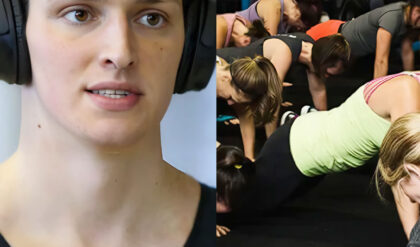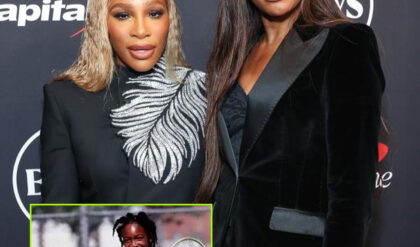The Paris Olympics shimmer with international prestige, yet USA Rugby star Kevon Williams pulls back the curtain on the games’ hidden struggles.
In an exclusive interview with EssentiallySports’ Olympic correspondent, Shreya Verma, Williams reveals the stark reality of life in the Olympic Village—from cramped quarters to immense pressure—painting a picture far removed from the glossy facade.

Williams owes much more to rugby than his average peer at the Paris Olympics. “Without rugby, I wouldn’t have graduated,” he confesses, underscoring the sport’s pivotal role in his life. Yet, even as he revels in the “beauty of Paris” and enjoys the “cool” atmosphere of the Olympic Village, he acknowledges the underlying issues.
In the EssentiallySports Exclusive Interview with Shreya, the athlete reveals that his journey has not been so bleak from the very start to begin with. “It’s great; it’s good. Just enjoying France,” Williams shares, his initial enthusiasm tempered by the challenges he faces.
“The village is cool, you know. They got us set up real nice in there. A lot of stores, a lot of cool things to do. It’s been going real smooth. We’re enjoying it.” But beneath the surface, Williams’ Olympic dream is marred by the harsh realities of the Village.
“It’s hard. It is hard,” Kevon Williams laments, echoing the sentiments of countless athletes grappling with uncomfortable cardboard beds. While there’s a designated spot in the village to personalize the beds, Williams candidly admits, “Yeah, I’m just a little lazy, so I ain’t moving it.” The issues could’ve ended there. They didn’t.
Reports indicate that the Olympic Village serves raw meat, and food shortages occur. The French newspaper L’Équipe said there isn’t enough protein available, especially eggs and grilled meats. On Wednesday, eggs were rationed.
Andy Anson, chief executive of Team Great Britain, seconded the lack of certain carbohydrates. The British Olympic Association has hired catering at its performance lodge in Clichy to tackle this. Athletes will travel there to eat and train instead of solely depending on the Olympic Village. However, the catering partner, Sodexo Live!, has confirmed that they will increase volume to satisfy the Olympians.
The culinary experience in one of the top 16 food capitals in the world is the one factor that especially falls short of expectations. “I’m eating here today,” Kevon Williams points to a nearby eatery, suggesting he’s opting for outside options.
While he downplays the negativity surrounding the food, stating, “So nah, I mean, it’s food. They got good, healthy food there.” His actions speak volumes about the culinary concerns plaguing the Olympic Village.
Despite his occasional forays into the local food scene, he acknowledges that “sometimes they’re running out,” a stark contrast to the Michelin star promises made by the organizers. However, he also finds himself empathizing with the challenges being faced by the Olympic committee as well. “I mean, it’s a lot of athletes, so they’re doing the best they can.”
Despite Paris’ aesthetic transformation, the Olympic Village is marred by recurring issues. The much-maligned cardboard beds from Tokyo have returned, raising eyebrows about their true purpose—sustainability or cost-effectiveness?
The substandard food, including reports of raw meat and shortages, has prompted some teams to seek external catering. Even more alarmingly, the swimming triathlons face potential delays due to E. coli contamination threats in the Seine River.
Thankfully, a few athletes are taking matters into their own hands instead of letting things be as they are. “Knowing that Paris is going to have the cardboard beds again—the ‘anti-sex’ beds, which is not what they are for—they are very uncomfortable,” Paralympic star Nick Mayhugh told CBS Sports in retrospect. “So I think I’m going to Amazon, order a mattress topper, and have it shipped there so I can be more comfortable than I was in Tokyo.”
As the Paris Olympics unfold, the focus shifts from the athletes’ resilience to a broader question: Has France, in its pursuit of Olympic glory, sacrificed the well-being and comfort of its guests?
Williams’ story is just a microcosm of the larger Olympic paradox. The games that promise glory and boast of esprit de corps have their athletes grappling with substandard living conditions and logistical nightmares behind the scenes.
Even as Kevon Williams admits in the Exclusive EssentiallySports Interview with Shreya Verma that he looks forward to watching the women’s rugby finals, stating, “I’m probably going to go watch the women’s team. They play the finals tomorrow,” his excitement is tinged with disappointment. Will his Olympic dream of an ever-perfect celebration of all things sports be forever overshadowed by the harsh realities brought forth by the logistical hurdles of the Paris Olympic Village? Let’s see how the rest of the Paris Olympics story unfolds… shall we?





